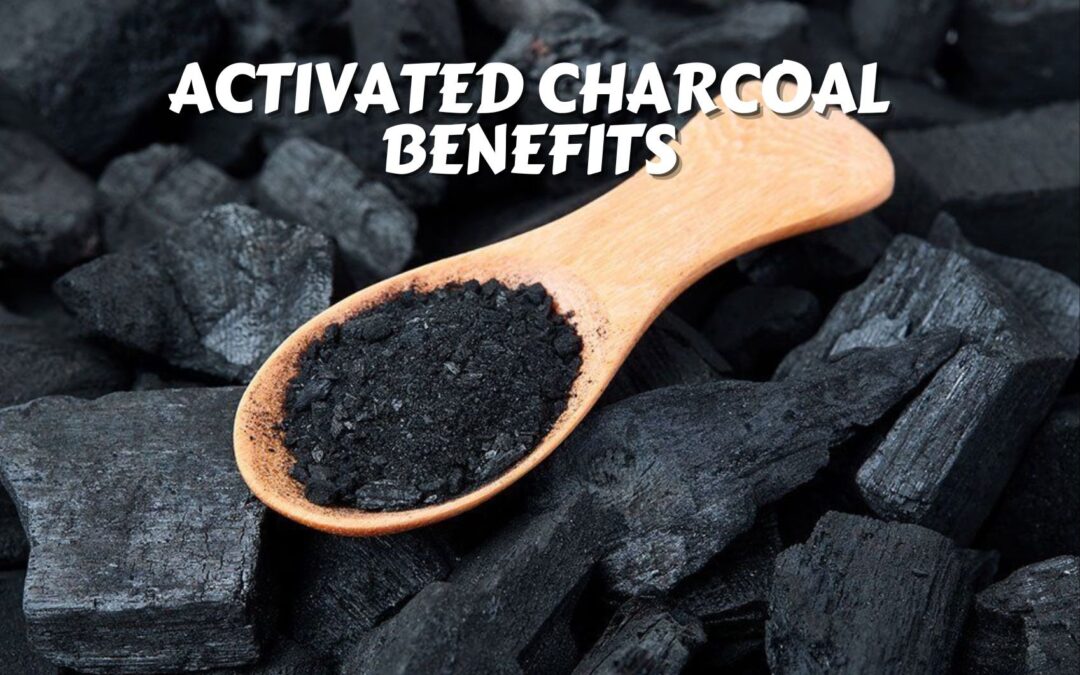Activated charcoal, also known as activated carbon, is a fine, black powder that is odorless, tasteless, and non-toxic.
It’s made from a variety of carbon-rich materials, such as wood, coconut shells, peat, or sawdust. These materials are subjected to high temperatures in an environment with limited oxygen. This process, known as activation, enlarges the surface area of the charcoal and creates a network of pores that can trap chemicals.
Uses for Humans
Medical Applications: Activated charcoal is primarily used in emergency medicine to treat certain kinds of poisoning or overdose. When ingested, it binds to toxins and prevents their absorption by the body. It’s effective for substances that bind to charcoal, such as aspirin, acetaminophen, and barbiturates.
Digestive Health: Some people use activated charcoal to alleviate gas and bloating. However, its effectiveness for these purposes isn’t well-supported by scientific evidence.
Oral Health: Activated charcoal is a popular ingredient in toothpaste and tooth powders for its purported teeth whitening effects and ability to absorb plaque.
Skin Care: It’s also used in skincare products, like facial masks, due to its ability to bind to and remove impurities and oils from the skin.
Uses for the Environment
Water Filtration: Activated charcoal is a key component in many water filtration systems, as it can absorb a wide range of impurities and contaminants, including chlorine, odors, and pigments.
Air Purification: Similarly, it is used in air purification to absorb toxins, chemicals, and odors from the air.
Soil Remediation: Activated charcoal can also be used in environmental projects for soil remediation, as it helps in absorbing and removing toxins from contaminated soil.
Clinical Trials and Evidence

Activated charcoal for whitening teeth
Several clinical trials have been conducted to evaluate the effectiveness of activated charcoal. For instance:
Poison Control: A study published in the “Journal of Emergency Medicine” found that activated charcoal was effective in reducing the absorption of certain toxins when administered within one hour of ingestion.
Digestive Issues: Research published in the “American Journal of Gastroenterology” suggested that while activated charcoal might help reduce gas and bloating, the evidence is still inconclusive.
Teeth Whitening: A study in the “Journal of the American Dental Association” indicated that while charcoal toothpaste may help remove surface stains on teeth, it’s not more effective than other tooth-whitening methods and might be abrasive to teeth.
Safety and Side Effects
Activated charcoal is generally considered safe for most applications. However, it should not be used as a treatment for poisoning without consulting a healthcare professional. Side effects can include constipation and black stools. If inhaled, it can cause lung damage.
Conclusion
While activated charcoal has several uses and benefits, particularly in medical and environmental applications, its effectiveness for certain health-related claims like teeth whitening and digestive health requires more scientific evidence. It’s important to use it responsibly and with professional guidance in medical situations.
We hope you found the information above useful. Leave a comment below, or contact us if you have any questions.
